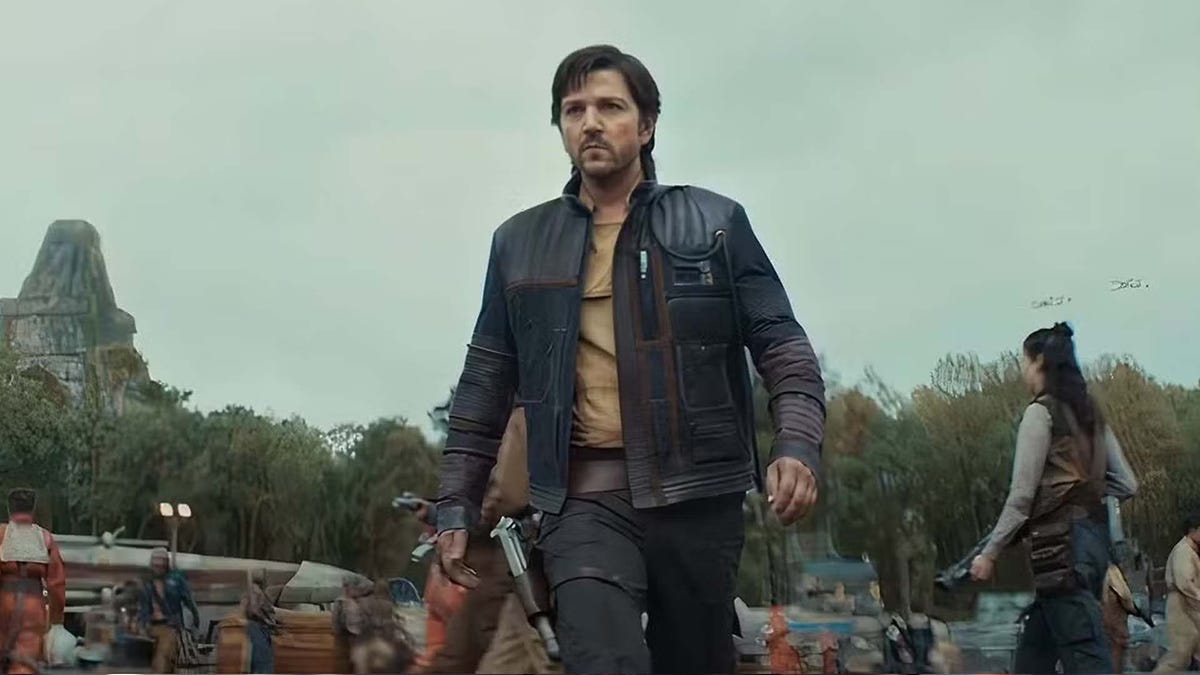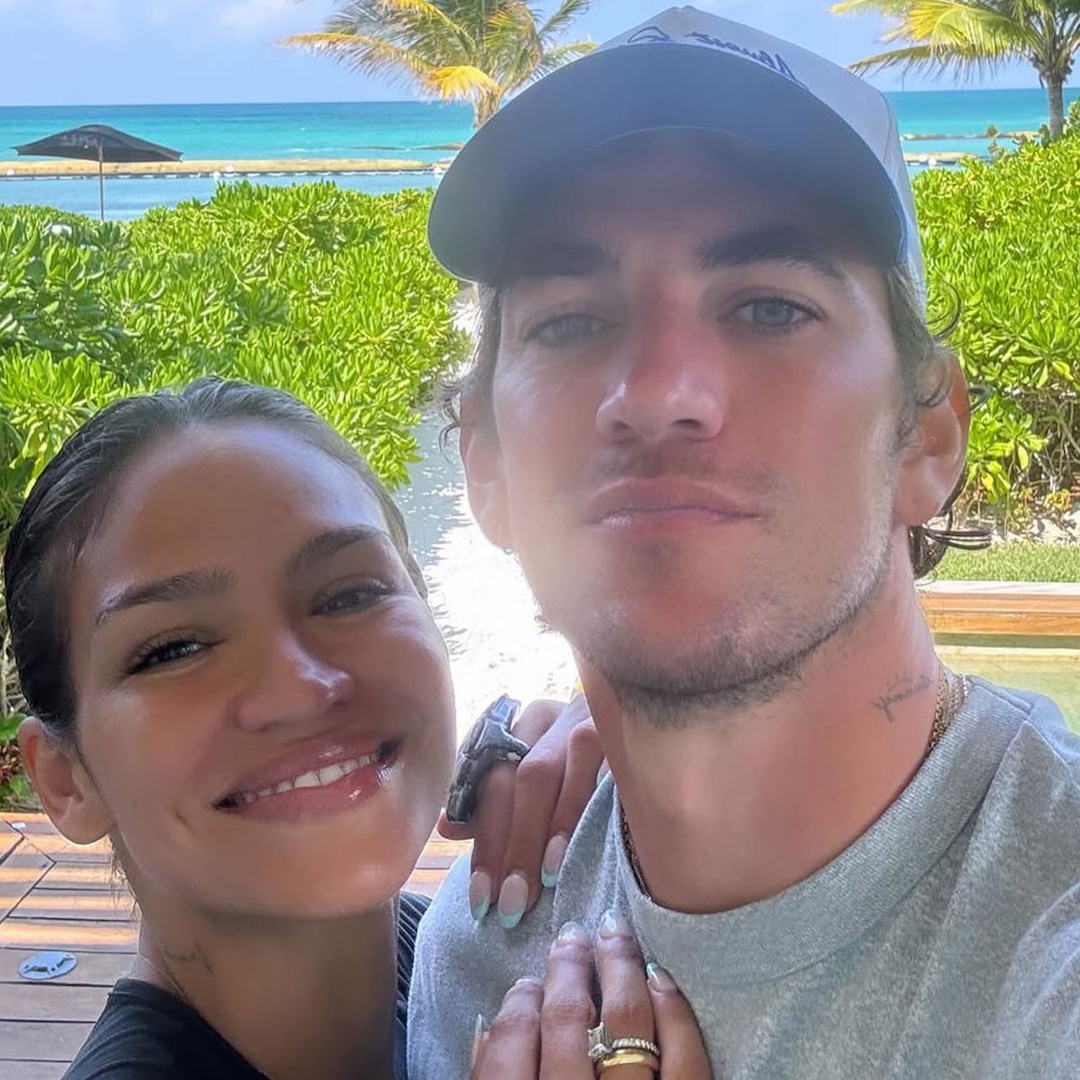'Andor' Season 2 Finale: Finding the Cost of Freedom
In the final three episodes of 'Andor,' Kleya and Partagaz face unthinkable choices and Cassian gets in position for 'Rogue One.'

This post contains spoilers for the final three episodes of Andor, now streaming on Disney+.
In the concluding episode of this season, and thus of Andor as a series, Vel and Kleya discuss some of the terrible things they’ve had to do to keep the rebellion alive, including Kleya’s decision to kill Luthen in order to prevent the ISB from torturing for information about the Rebel Alliance.
This was an incredibly painful thing for Kleya to have to do to her mentor and surrogate father. But Luthen trained her well, as we saw in this week’s flashback-driven opening episode. Talking with Vel, she’s trying to remain philosophical about all the tragedy, and recalls a piece of Luthen’s advice: “He always used to say, ‘Know your way out before you go in.'”
These three episodes are an explicit case of that advice in action. Andor was conceived as a prequel to Rogue One, and a way to show how Cassian Andor became the master spy we saw leading the mission to secure the Death Star plans that Luke Skywalker and friends will take advantage of in Star Wars. So if you look back at the show’s genesis like that, it makes sense that these remaining chapters — the finale in particular — would be so devoted to putting Cassian and K2SO in position for their final, incredibly important, assignment.
But Andor quickly evolved from being an origin story about its title character into a broader, deeper, more powerful look at the origin of the Rebel Alliance itself, and at all the moral sacrifices Luthen, Kleya, Vel, Mon Mothma, and others had to make along the way. Because of that, and because Cassian himself turned out to be a much less complex figure, who existed more to serve the show’s plot than its themes, it feels like devoting so much time at the end to setting up the events of Rogue One is besides the point — a vestige of a show that Andor stopped being almost immediately.
Several decisions made here seem to happen entirely to stay consistent with the movie, rather than because they make sense for the characters. Luthen murders Lonni, for instance, before Lonni can tell him much of anything about the Death Star, because Cassian has to learn about it in Rogue One(*). Mostly, though, it’s a drag to realize that the series’ discussions of fascism and rebellion are largely set aside in the final hour in favor of moving pieces around the board on behalf of a nine-year-old movie.
(*) In the film, Cassian seems to know nothing whatsoever about it when his contact tells him about Galen Urso’s planet killer. If you go back and watch that scene now, it either flies in the face of what he learns here on Yavin, or you have to read his reactions more as him realizing that Luthen’s information was correct.
But at least the trio begins with a largely stand-alone installment that’s among the best of the series, and that for a moment seems to be positioning Kleya, rather than Cassian, as the true hero of the show.
Kleya was such a minor figure in the first season that I’ll confess to not even learning her name until this year. Slowly but surely, though, Elizabeth Dulau and the writers have turned her into the symbol of everything Andor is about, maybe even more than Luthen. As we learn over the course of this episode, she was just a little girl when her family was killed as part of a massacre conducted by an Imperial military unit Luthen was a part of (under his real name, Lear — “Rael,” backwards). This is the straw that breaks the future antique dealer’s back when it comes to the Empire, and he decides to abandon his post to raise this kid, indoctrinating her from an early age with both antifascist rhetoric and lessons in spycraft. As we get glimpses of their journey, there are moments when she seems even more hardcore about the cause than he is, though that’s partly because he is older, wiser, and more prepared to play the long game, even if it demands short-term sacrifices. But he has lived a full life before he meets her, where she has barely had any when he first begins indoctrinating her into rebellion. This is all she truly knows, and he is all the family she has.
So when an overconfident Dedra enters the antique shop on her own to arrest Luthen, and Luthen takes advantage of this to attempt suicide so he can’t be forced to turn on his allies, Kleya is given an impossible but necessary task. Luthen has to die to prevent the doctors from healing him enough for interrogation and torture. And Kleya is the only one available — and, in some ways, the only one with the emotional fortitude — to do it. The group on Yavin has grown to mistrust, resent, or even outright hate Luthen, in part because they don’t feel they can trust him, but also because he’s willing to do things they simply won’t. Case in point: Ending Luthen’s life to silence him is a bridge too far for most of that group(*). But doing it herself is the best way for Kleya to honor everything Luthen taught her. She makes her way into the hospital, moving past layers of guards because no one would think to suspect a small and unassuming nurse, and does what needs to be done. She knows what little information Lonni passed along, and assuming Cassian can get her off of Coruscant, she can bring it to her rivals on Yavin.
(*) Not all, though. In Cassian’s aforementioned first scene in Rogue One, when he realizes that his contact won’t be able to escape the Imperial forces that are closing in, Cassian kills the guy to protect the mission.
Lucasfilm Ltd
There’s still the matter of that escape, of course, which leads to some nifty action in an apartment building hallway, and to K2SO once again proving to be a one-droid army.
While hiding out in the apartment where Cassian and Bix were living during the season’s second chapter, Kleya looks to the next step and laments, “Yavin. After all this. What a bitter ending.” Once everyone is on Yavin for the finale, it’s more a bittersweet — or too understated — ending than outright bitter. Kleya and Vel lament what they’ve lost, both in terms of loved ones and their own souls. Rebel Alliance leadership seems extremely reluctant to believe the intelligence Kleya has brought them, because the good guys in the Star Wars universe are often wildly tunnel-visioned(*). And mostly, we’re just counting down for Cassian and K2SO to take off on the Rogue One mission.
(*) Tony Gilroy has said that Jimmy Smits couldn’t play Bail Organa because production on the season began while Smits was committed to the short-lived CBS cop show East New York. But maybe Smits is relieved that he didn’t have to play Bail as a willfully ignorant fool in this installment?
It’s not a bad episode. It’s just not the ending Andor had earned by this point. We get closure on some of the series-specific characters — Dedra has wound up in a prison much like the one Cassian was stuck in for the first season’s best arc, while Mon Mothma’s unloving husband Perrin finally gets to exercise his libido on some other women — and the actual concluding image is of Bix, back living on the wheat planet, raising the baby that Cassian will never live to hold. So it’s not entirely focused on the film(*). But most of it is.
(*) We also get a glimpse of Cassian dreaming of his sister, which is mostly a reminder of the severely underfed Season One plotline about him wanting to find her by any means necessary.
In many ways, the thematic conclusion of the series comes several scenes earlier. Dedra’s boss Partagaz is listening to the manifesto recorded by Karis Nemek, the idealistic young revolutionary who was part of the heist crew from Season One’s second arc. One of Partagaz’s protégés has been arrested. Another is dead. The rebellion seems to be growing bigger and stronger by the day. He is old enough to have served the Republic. And while he seems largely untroubled by the kinds of things he’s been asked to do on behalf of the Empire, he also knows that his cause is lost, and that all these recent ISB screw-ups are likely to land on him. So he takes out a blaster and kills himself. Luthen believed deeply in something bigger than himself, and was prepared to die to make that happen — as he told Lonni in the “sunrise I will never see” speech, he understood that he was almost certainly going to die before the war was won. Partagaz believed in nothing beyond chain of command and doing the job assigned to you. He dies not for a cause, but because he realized that at best, he had committed himself to the side that’s doomed to fail, and at worst, had committed himself to the wrong side of things. As Karis’ voice on the recording notes, “Tyranny requires constant effort.” Partagaz has been putting in that effort for a very long time, and what has that accomplished? Where has it gotten him?
It’s a potent sequence. There are a lot of them here. But Andor has so thoroughly surpassed Rogue One in any kind of ranking of the best, most important Star Wars projects, that the finale’s overriding concern with the movie isn’t what the series deserved.





















